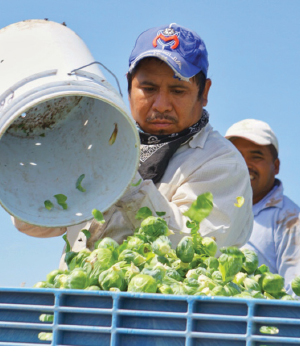Covilli produce now Fair Trade Certified
This article was originally published in March 2016

We’re delighted to report that the Covilli brand, known for the highest quality certified organic produce at PCC, has certified its farm Fair Trade USA. Now, all Covilli produce — including green beans, Brussels sprouts, eggplants, hot peppers, melons and more — is Fair Trade Certified by Fair Trade USA.
The Fair Trade certification ensures Covilli farmworkers have safe working conditions, access to health care and education for workers’ children, regulated working hours, as well as rest and sick days. Fair Trade certification also verifies sustainable farming practices.
Buying any of Covilli’s Fair Trade produce is an easy way to support the hardworking people who grow the foods at PCC that grace our tables. Just a few extra cents — the Fair Trade Premium — allows for democratically chosen projects — such as purchasing a school bus or providing dental benefits — to become a reality in farmworker communities.
“We want to do the right thing for our workers, says Covilli owner and president Alex Madrigal. “Fair trade empowers the farm workers to accomplish more, learn more, and get training with the money earned from the Fair Trade Premium.”
Family owned and operated, Covilli brand organics was born from a farmer’s vision to provide superior, premium quality produce. As a certified organic farm, Covilli meets U.S. Department of Agriculture Organic Standards, the same as any domestic grower. For details see “Question about Mexican organics?”
